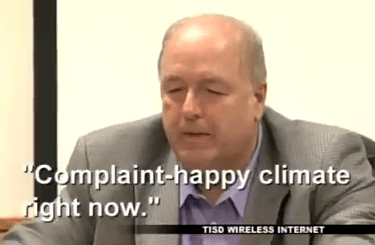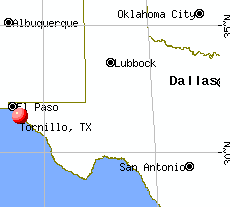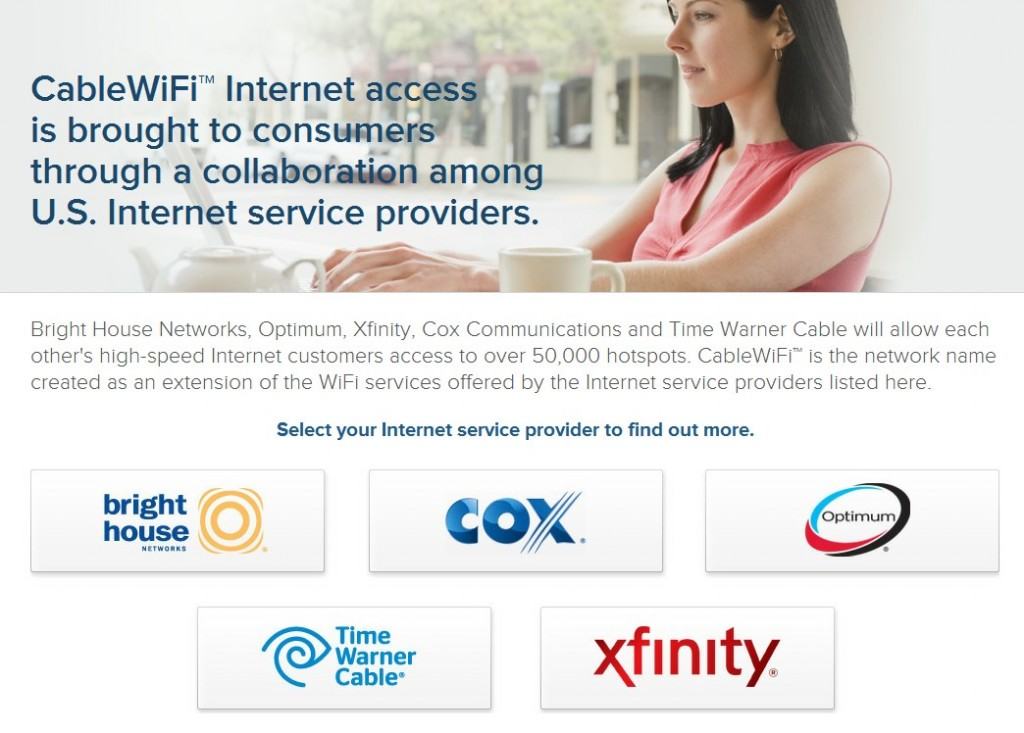
Vranish says the community's free Wi-Fi has to go because of a "complaint-happy climate." (Image: KVIA-TV)
A bizarre political dispute involving board members of the Tornillo, Tex. Independent School District threatens to shut off community-owned Wi-Fi service for more than 500 subscribers.
The Tornillo school board is no stranger to controversy, and evenly divided factions often create at atmosphere some local residents describe as the best political theater in town.
Unfortunately, the town’s Internet access may be a casualty of the school board’s latest dispute.
Tornillo, a small community of 1,600 in southeast El Paso County, needs Internet access. With 36.8% of the population below the poverty line, commercial providers have shown little interest in selling broadband to the community, more than 99% of which are Latino-American.
Since 2004, the local school district has provided free wireless access for a one-time setup fee of $275.
Now school Superintendant Paul Vranish has said he will shut off the service because a majority of the school board failed to vote for a resolution that would pay for any legal fees incurred by school district employees respecting any potential complaints about the service.
 Vranish blamed a local “complaint-happy climate” for necessitating legal protection, but some local residents suspect the real issue is a political dispute between Vranish, the rest of the school board, and Tornillo resident Ricardo Hernandez, who separately filed an unrelated complaint against Vranish with the Texas Education Agency. Two state agencies are presently conducting investigations into allegations Vranish misused district funds for personal gain.
Vranish blamed a local “complaint-happy climate” for necessitating legal protection, but some local residents suspect the real issue is a political dispute between Vranish, the rest of the school board, and Tornillo resident Ricardo Hernandez, who separately filed an unrelated complaint against Vranish with the Texas Education Agency. Two state agencies are presently conducting investigations into allegations Vranish misused district funds for personal gain.
Hernandez, according to the resolution, has “questioned a former employee as to the legality” of the Wi-Fi service. Vranish apparently is unwilling to find out whether the service is legal or not, declaring he would simply terminate the service at an unspecified future date.
“It’s a simple personal and political dispute that may well cost Tornillo its Internet access and leave 500 residents in the dark, all because Mr. Vranish thinks the community will turn against Mr. Hernandez if the service does close down,” writes Maria, a local Tornillo resident. “What are these people hiding because this is certainly not about Wi-Fi.”
[flv width=”480″ height=”290″]http://www.phillipdampier.com/video/KVIA El Paso Tornillo ISD To Discontinue Free Community Wireless Internet 4-4-12.mp4[/flv]
El Paso’s KVIA sought answers to the Wi-Fi dispute, but found themselves chasing the school district superintendent down a hallway, unwilling to address questions about the matter. (3 minutes)
 Comcast has announced it is opening up free Wi-Fi access to everyone in Hurricane Sandy’s impact zone, whether Comcast customers or not.
Comcast has announced it is opening up free Wi-Fi access to everyone in Hurricane Sandy’s impact zone, whether Comcast customers or not.

 Subscribe
Subscribe




